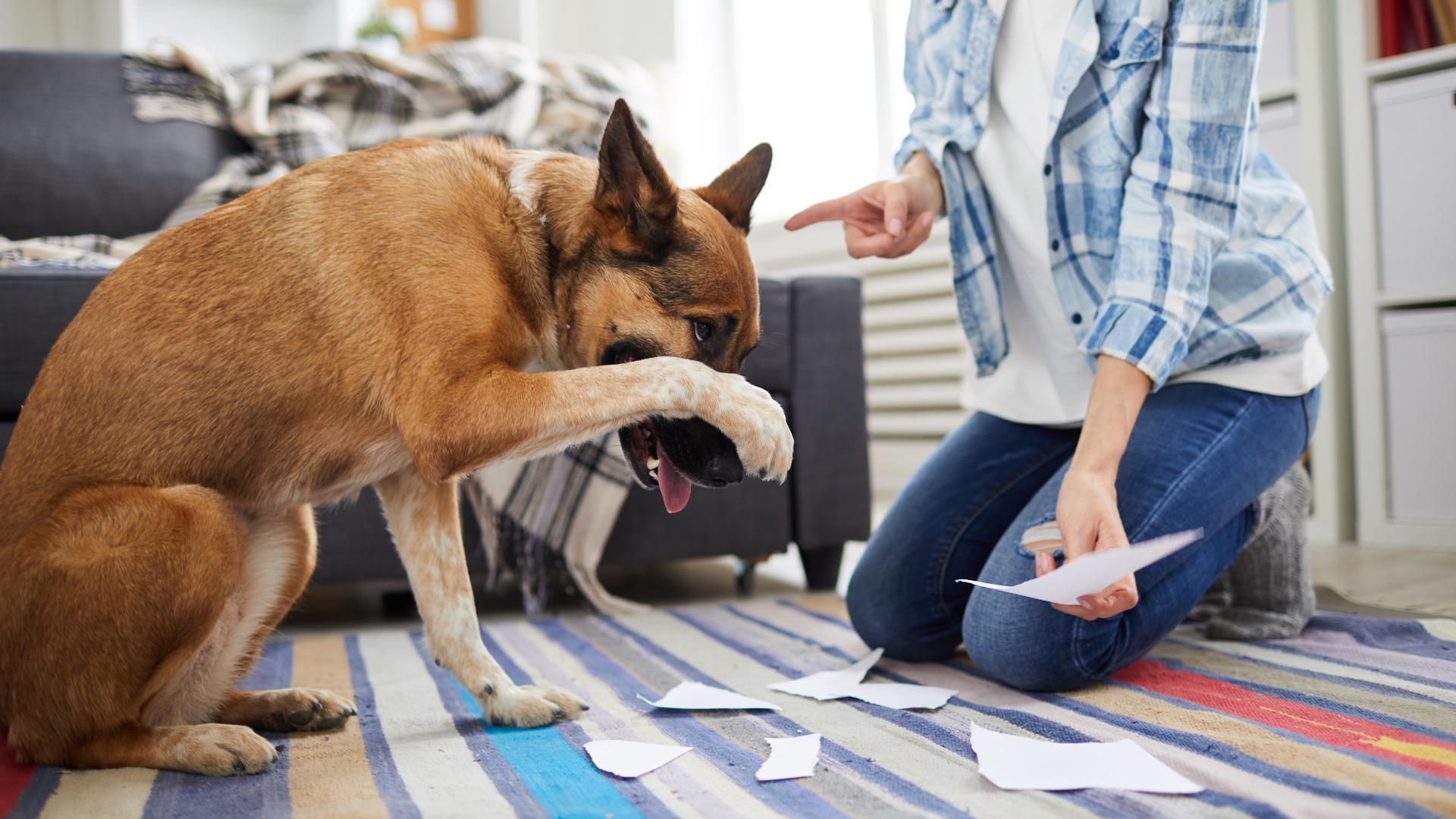
Let's be honest — owning a dog isn't always a walk in the park. In fact, it can feel downright challenging at times trying to juggle work, family, and being a pet parent.
Whether it's trying to figure out how to stop a dog from jumping up or doing your best to avoid the most common loose leash walking mistakes, there's so much to get your head around.
It's no wonder that sometimes we reach the end of our tether and end up having expectations of our dog's that they're just not able to meet.
According to expert trainer Carolyn, owner and founder of Good Dog Training, one of the hardest parts of being a trainer is trying to help people understand that even if you're the best dog owner in the world, your dog is still going to be a dog.
"People have such unreasonable expectations of their dogs," she explains in a post shared to Instagram, which you can view below.
Worried you might be guilty of holding some of these unreasonable expectations? If so, you're not alone!
Here are the eight that Carolyn sees the most often...
1. Expecting your dog to be happy after being crated for long periods: "People expect their dog to be happy being caged for 8+ hours a day," says Carolyn. "They get mad when their dog is energetic and wild upon being released or barks or chews their blanket or tries to escape their crate."
Learning how to crate train a dog is really important when it comes to your pup having a safe and secure place to rest after periods of exercise or when you're needing to pop out for a few hours. However, your dog will likely engage in behaviors you don't want to see if they're regularly crated for prolonged periods of time.
2. Expecting them to be well behaved with little enrichment: "People give their dogs little to no exercise or enrichment and expect them to be calm, content, and well behaved. They get angry and upset and call their dog "hyperactive" and "out of control" when their dog struggles due to their needs being unmet."
Check out our vet's guide for some great advice on how to play with a dog to ensure you're giving them all the enrichment and stimulation they need to stay happy and healthy.
3. Expecting your dog to always be in a good mood: Just like us humans, dogs experience a range of emotions. "People get upset if their dog expresses an emotion - if their dog is scared, excited, happy, or bored," Carolyn says. "People expect their dogs to stifle every feeling they have lest they be annoying."
4. Expecting your dog to never leave your side: Carolyn explains that it's unrealistic to expect your dog to be so obsessed with you that they'll always want to be beside you, to heel perfectly on a walk, to never get distracted, wander away, or disobey, and to never take their eyes off of you. Your dog's agenda, wants, and needs will not always align with yours - making room for them to be imperfect is really important.
5. Expecting your dog to tolerate things that you never would: This includes rude people, aggressive dogs, being yelled at, jumped on by screaming children, or crated all day.
6. Expecting your dog not to be a dog: "People expect their dogs to forgo all natural canine behavior and never dig, bark, growl, jump, run, urine mark, chew, mouth, sniff, or whine. People expect their dogs to transform into a robot devoid of personality and emotion," says Carolyn.
7. Expecting your dog to be confident without being socialized: In Carolyn's years of training, she's found it common for pet parents to forgo socializing their puppies and yet still carry the expectation that they'll grow up to be friendly, well-adjusted, confident adult dogs. "People either don't train at all or train very poorly and/or aggressively but still expect their dogs to know exactly what they 'should' be doing."
8. Expecting your dog to only do things when you give them permission: This includes urinating and defecating, eating, drinking, playing, etc. It's unrealistic to expect your dog to only do things in a specific way and at a specific time — their refusal to follow our rules at all times does not mean that they're being dominant or stubborn.
While Carolyn's views may hit hard, almost all of us can no doubt relate to being guilty at one stage or another of holding some of the above expectations.
A huge part of being a dog owner is learning and growing from our mistakes, so it's important not to beat yourself up if you're like us and have found yourself falling into one (or several) of the traps Carolyn speaks of.
Instead, try to remember that dogs are going to do dog things. They're living beings just like we are and have their own unique personalities and temperaments, just like we do.
If at any stage you feel stuck or challenged by your dog's behavior, we recommend reaching out to a professional trainer for support.







